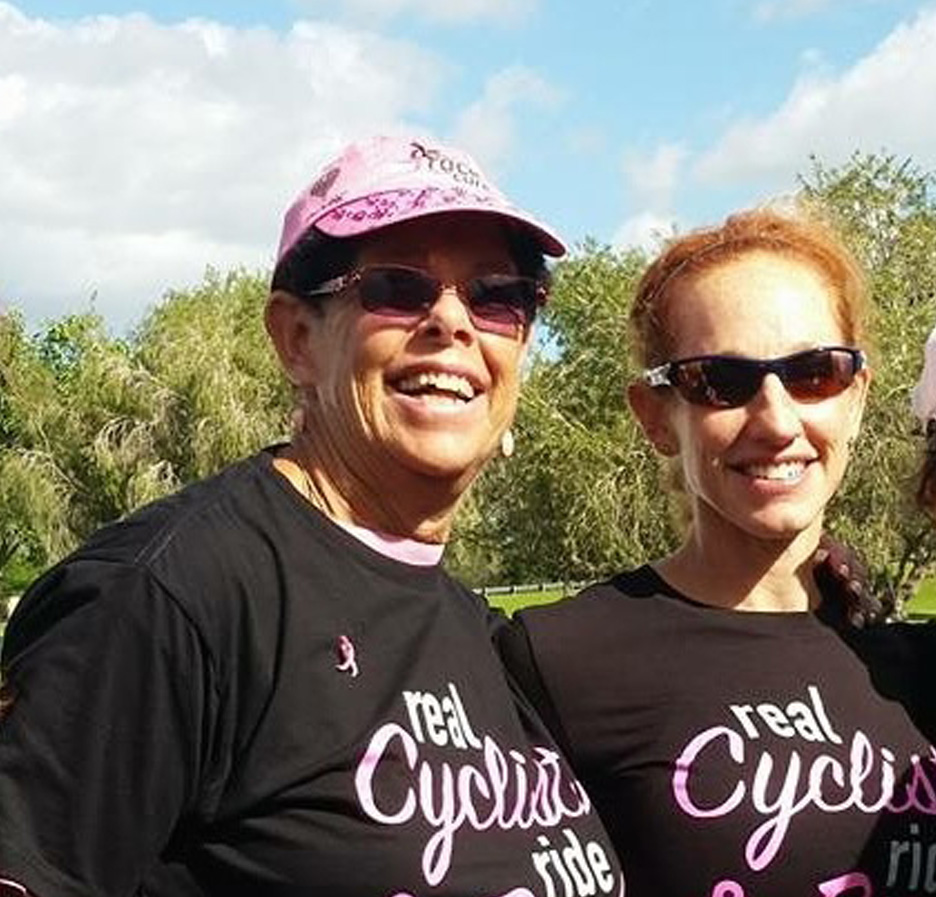Before my breast cancer diagnosis, I had a brief conversation with my OB/GYN physician regarding my potentially increased breast cancer risk. I was coming up on my 35th birthday, and thought it might be responsible to schedule a baseline mammogram. I don't recall anything remarkable about that conversation with my doctor. She provided me with literature to read, mostly studies and statistical information -- not really "plain speak." She suggested I share the information with my mom and discuss the possibility of her getting tested for the BRCA gene mutation.
With information in hand, that's what I did. However, the conversation did not go very well. My mom has faced many physical challenges during her adult life, having been diagnosed with multiple sclerosis in her mid-20s and then breast cancer later. In hindsight, I'm not sure if she fully understood what I was saying, or how it would affect me as well as her future self. My mom said nothing. I turned to my dad for help. He responded, "Eve...what are you gonna do if you learn that Mom is a carrier? Are you going to have your breasts removed?" Me: "I don't know, but knowledge is power, and I think I should know." The conversation was dropped, and we never discussed it again.
Less than a year later, I felt a lump in my breast while I was in the shower. I'd be lying if I said my mind hadn't gone back to that conversation with my parents. During an initial consultation with a medical oncologist, I had my blood drawn for BRCA1 and BRCA2 genetic testing to find out if my cancer was hereditary. I'm of Ashkenazi Jewish ancestry, my mom was diagnosed when she was less than 40 years old, and I was 35 when I was diagnosed. I understood these were risk factors that warranted the test, and the results would factor into my surgical decisions. It took 9 long days and sleepless nights until I received the results. The report came back: POSITIVE FOR A DELETERIOUS MUTATION. This was important information to have for both me and my mom who subsequently also tested positive for the BRCA1 gene mutation. Now the question was "What would we do with this powerful information"?
Learning I was positive for the BRCA1 gene mutation complicated matters, but simplified my chosen surgical plan. It was in my best interest to have a bilateral mastectomy to help prevent future breast cancer, followed by chemotherapy for treatment and reconstruction.
Several years later, through the advice of one of my oncologists and prodding from my father, my mom chose to have a bilateral salpingo-oophorectomy (both ovaries and Fallopian tubes removed). Due to complications during surgery, she ended up having a complete hysterectomy. Nevertheless, by having this preventive surgery, she significantly reduced her risk of ovarian cancer. Unfortunately, she developed a second cancer in her breast two years ago; after 27 years of living cancer-free, it spread to her lungs. Had my mom had the information about hereditary cancer during her initial diagnosis in the late 1980s, it is very likely that her chosen surgical plan would have been a bilateral mastectomy vs. lumpectomy, thus reducing her future risk of a second breast cancer.
As for me, I actively screened for ovarian cancer until early this year when I had my ovaries removed. In my case, a preventive oophorectomy reduced my risk of ovarian cancer and provides a significant and substantial long-term survival advantage. However, that comes at a cost -- there are risks and some adverse effects of this procedure, including surgical menopause and infertility. I don't have children and I kind of always thought I would, but it just didn't work out that way. As the Yiddish proverb goes, 'Man plans and God laughs'.





